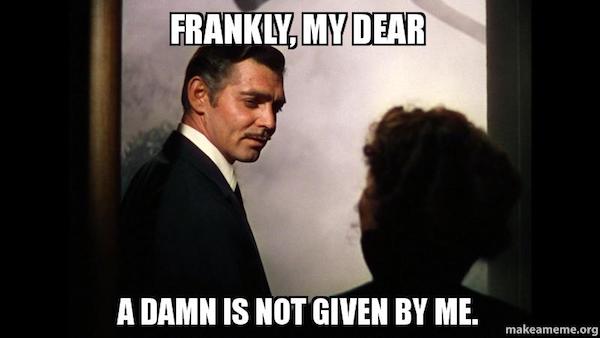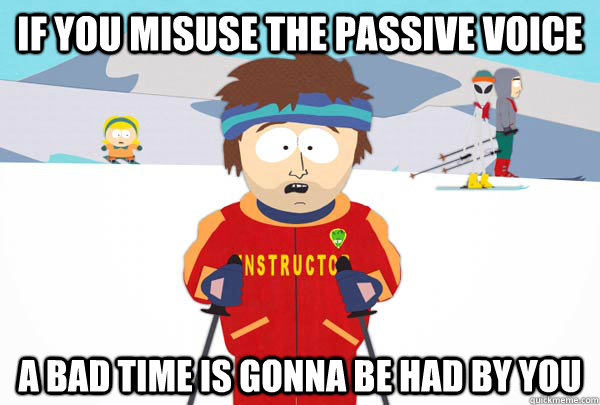What If? Writing Prompts: History VI
Yesterday was Independence Day in the US, so here’s a special set of “What If?” Writing Prompts to celebrate! This week’s batch features more prompts in the history genre, specifically American history! See what historical tales you can spin from these ideas, and feel free to add more of your own! Have fun!
 What if… every state in the US were its own country?
What if… every state in the US were its own country?
What if… the “Wild West” hadn’t been settled in the 18th century?
What if… the stock market hadn’t crashed in 1929?
What if… the Japanese attack on Pearl Harbor had never happened?
What if… the US hadn’t undergone McCarthyism in the ’50s?
Good luck writing your own stories about American history!
If you have any “What If?” writing prompt suggestions (for any theme), please feel free to share them in the comments below. Ideas I like may be featured in future “What If?” posts, with full credit and a link to your blog (if you have one)! Also, if you’ve written a piece based on an idea you’ve found here, be sure to link back to the respective “What If?” post. I would love to see what you’ve done with the prompt! Thank you!
Word of the Week: Oligarchy
Word: oligarchy
Pronunciation: AH-lə-ɡahr-kee
Part of Speech: noun
Definition: a small group of people having control of a country, organization, or institution
Source: Oxford Dictionaries
It’s Independence Day in the US tomorrow, so why not take this opportunity to learn a new political word? Today’s Word of the Week is one I’ve been meaning to write about for a while, and now that some might say it’s more relevant than ever, it’s a good time to finally add it to the list! We love to believe in the idea of democracy, a government of the people, but sometimes the reality seems more like a select few are calling all the shots. In a nation where the wants of the few outweigh the needs of the many, we can only be living in an “oligarchy”!
An “oligarchy” is a form of government in which a small group of people control an entire country, institution, or organization. The word arose in the late 15th century and comes from the Greek noun oligarkhía, meaning “rule of few”. This noun comprises the adjective olígos “few” and the noun arkhḗ “authority”.
Historically, an “oligarchy” has usually been characterized as tyrannical and oppressive in nature, with power belonging to minorities distinguished by such criteria as nobility, wealth, or religious influence. Aristotle first used the word synonymously with “rule by the rich”, a definition that many critics still use in reference to certain modern governments. If your stories are set in a fictional world ruled by a small but powerful group, you’ve definitely created an “oligarchy”!
What are your thoughts on this word? Any suggestions for future “Word of the Week” featured words?
Independence Day
For over two hundred years,
Our country has been free, the
United States of America,
Representing a beacon of light
To all those seeking a brighter future and
Hope for a brand new start.
Opportunities abound in this land of
Freedom for all who come with a dream.
Join the celebrations tonight
Under the Star-Spangled Banner!
Land of the free, home of the brave,
You will always be my home!
Yes, no matter how crazy the world gets, a part of me will always believe in this idealized image of my beloved America. Happy Independence Day to all my American family, friends, and readers! May you all have a blessed Fourth of July weekend!
3 Reasons You Should Write Fiction in Active Voice
Anyone who either is or has worked with an editor has had to deal with the common writing issue of active voice vs. passive voice. Any and every editor worth their salt will tell you to favor active voice, while writing in passive voice is just another bad habit you’ll have to learn to break. But why? What is active voice and what makes it so much better than its passive counterpart?

Finally, a fun way to check for passive voice!
(Image source: Grammarly Blog)
In a nutshell, an active voice sentence is when the subject does an action to the object, while passive voice is when the subject has an action done to it by the object. Both voices can be used to convey the same message, yet writing tips often advise favoring the former over the latter. This is especially true for fiction, which relies heavily on not only keeping readers engaged for an entire story, but evoking their emotions as you guide them through the world of your narrative.
So to help you create stronger and more appealing fiction, here are three reasons you should favor active over passive voice. Good luck!
1) Active voice is clearer, stronger, and more concise.

The longer you’ve been writing, the more you appreciate concise and direct language. In this modern-day barrage of knowledge, information that’s delivered and processed quickly tends to have a greater impact, so the fewer words you can use to convey a message, the better. One way to achieve this is by replacing passive voice statements with their active counterparts. Observe the difference:
Active: She loved him, but he rejected her.
Passive: He was loved by her, but she was rejected by him.
Notice how the active voice sentence is simpler yet much more powerful. Written concisely, the feelings of love and rejection between these characters become prominent and impactful, whereas the longer sentence appears convoluted and awkward, despite having the same meaning. By using fewer words, you can keep your writing direct and make your narrative stronger, which will result in more effective prose. Why let it be done by you when you can just do it?
2) Active voice sounds more natural.
Think about your favorite story, that book you enjoy so much you could read it over and over. Now think about why you love it. If “it speaks to me” is one of the first reasons to come to mind, then you’ve just made an excellent point to support active voice.

The types of writing that most resonate with us are the ones that sound familiar, that is, that mimic the way we speak. Active voice achieves this far more easily than passive voice because most of our speech is active. For example, when bragging to someone about an achievement, you wouldn’t tell them, “That was done by me”; you would say, “I did that!” Similarly, narrative should be as direct and “active” as spoken words. You want to draw your readers in and keep them hooked to the last word, and what better way to achieve that than by speaking directly to them?
3) Active voice keeps the momentum going.
One of the keys to good storytelling is to always keep the action moving forward. Even slower descriptive scenes should read smoothly, with new and relevant information in every line. Passive voice makes this difficult, as it has a way of dragging the pace of a story with unnecessary words and phrases. Don’t give your readers a motive to put your book down!

You don’t want your readers to have a bad time, do you?
Keep your prose clean by limiting passive voice to the few instances in which it works best:
- when you can’t say who performed the action;
- when you want to emphasize the action itself; and
- when you’re highlighting a general truth.
In all other cases, active voice will better maintain the momentum in your narrative, keeping your readers engaged through each new action until the end of the story. A good example of why this works is the Hero’s Journey: the hero answers the call to adventure, faces trials, confronts a great ordeal, collects the reward, and returns from his or her quest a new person. At every stage, the hero does something that leads to something else, standard cause and effect that propels the action forward. Apply this technique to your prose and the active voice will accomplish its most important goal: to make your writing active and interesting!
Perhaps you tend to overuse the passive voice without realizing (I know I’m still guilty of this), but luckily it’s an easy problem to fix. So the next time you edit one of your stories, keep an eye out for unnecessary passive sentences and replace them with their active parallels. Your readers will appreciate the effort!
What are your thoughts on active and passive voice? Are you guilty of not using active voice as frequently as you should?
Word of the Week: Despot
Word: despot
Pronunciation: DES-pət
Part of Speech: noun
Definition: a ruler or other person who holds absolute power, typically one who exercises it in a cruel or oppressive way
Source: Oxford Dictionaries
There are despots and dictators,
Political manipulators.
There are blue bloods with the intellects of fleas.
There are kings and petty tyrants
Who are so lacking in refinements,
They’d be better suited swinging from the trees!
– “Perfect World“, The Emperor’s New Groove (2000)
Remember The Emperor’s New Groove, that wacky Disney movie about a cool Mesoamerican emperor who gets turned into a llama? If you saw even the trailers for this film back in the year 2000, you may recall that Emperor Kuzco is so vain, he even has a servant whose only job is to sing him his own theme song (voiced by Tom Jones, no less)! To emphasize the emperor’s greatness, the opening lines of the song mention other types of not-so-great rulers who could never measure up to him. The irony? Given his extreme selfishness, Kuzco may very well be a “despot” himself!
A “despot” is a ruler with absolute power, which is typically exercised in an oppressive or cruel way. The word arose in the mid 16th century and traces back through the French noun despote and the Latin noun despota to the Greek noun despótēs, meaning “master”. This word was first used as a court title in the Byzantine empire, while the current sense dates back to the late 18th century.
According to Oxford Dictionaries, the word “despot” originally referred to petty Christian rulers under the Turkish empire after the conquest of Constantinople. While not originally pejorative, the word gradually took on a negative connotation throughout history, eventually becoming synonymous with such terms as “tyrant” and “dictator”. Notably, however, despotism is a distinct form of government with its own history, so take care when using these terms interchangeably in a historical context. If you write characters who are oppressive rulers with absolute power, “despot” may be an excellent word to include in your stories!
What are your thoughts on this word? Any suggestions for future “Word of the Week” featured words?


Recent Comments